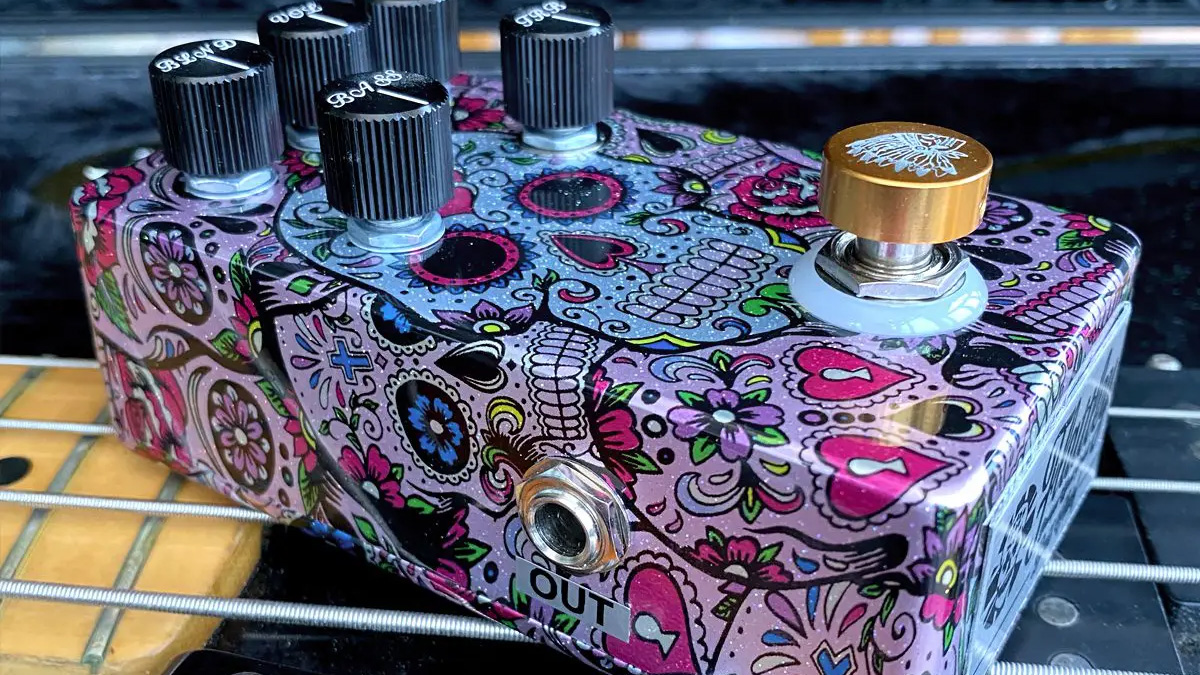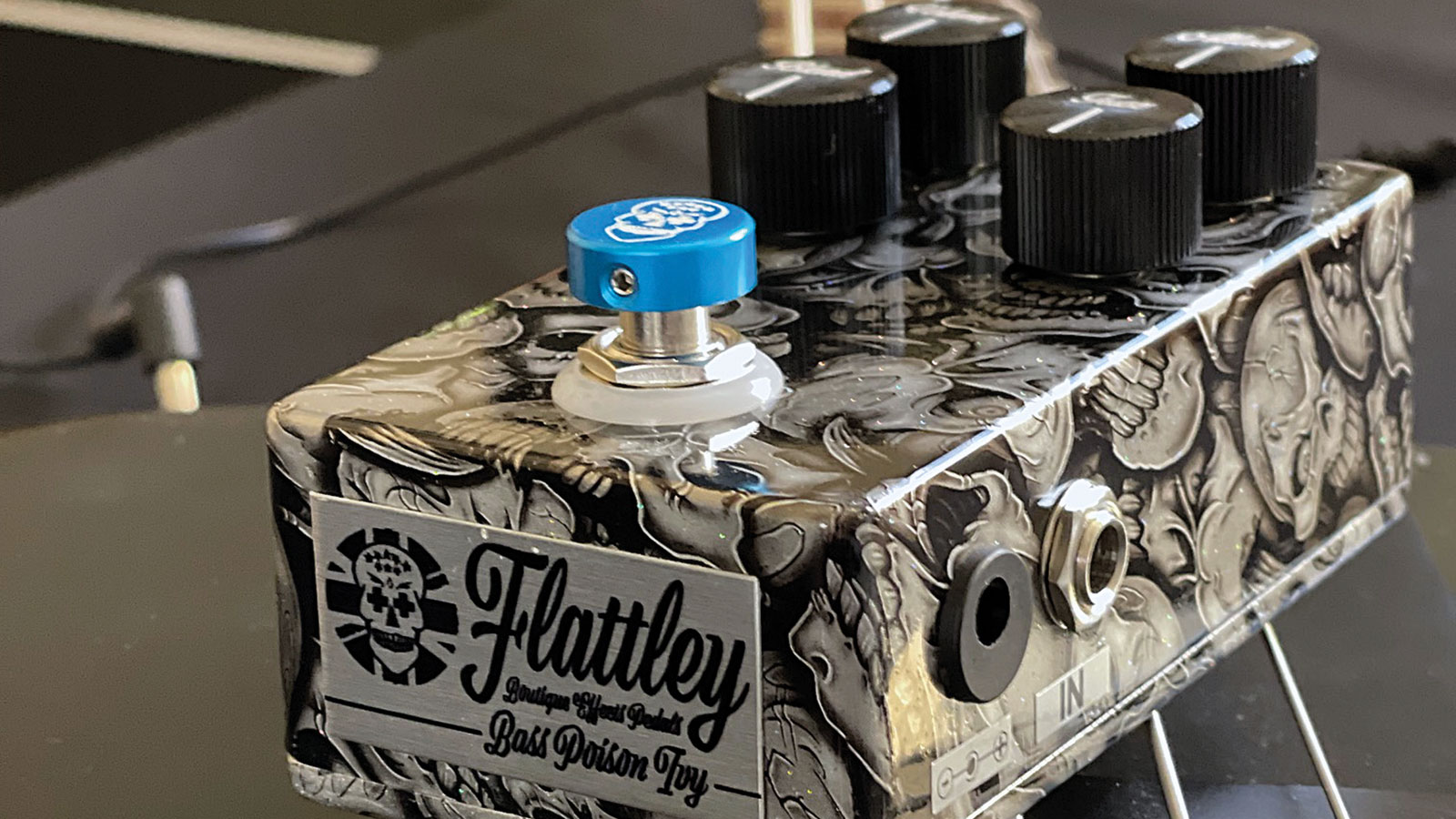Guitar World Verdict
Highly user-friendly pedals that offer two distinct flavors of dirt to your bass tone, from the creamy saturated overdrive of the Bass Chief to the
Pros
- +
Great overdrive tones.
- +
Attack control on the Poison Ivy dials in welcome clarity.
- +
Retains low-end well.
- +
Enclosure art is very cool.
- +
The illuminated halo ring is very cool, too, and useful in low-light situations.
Cons
- -
It's 2022, that means there's heaps of competition to sift through.
You can trust Guitar World
The UK-built Flattley effects range has been around for a few years now, and we’ve followed their progress with interest.
These two bass overdrive and fuzz pedals, recently updated for a more convenient layout, look and feel fantastic – who doesn’t like ‘Dios Del Muerte’ artwork and a halo light effect?
Flattley Bass Chief
Plugged in, the Bass Chief matches expectations. While we’re inundated here at BP with nuclear-strength overdrives that will break your neighbor’s fish tank, this one has plenty of subtlety built in.
Sure, the Volume control is very responsive and will have your arm off if you roll it on too fast. Still, the other rotary pots – Blend, Overdrive, Bass and Treble – allow you to introduce just a slight touch of crunch to your tone, even at low volume: Enough to add a bit of clank and grind, but without being completely obnoxious.

The other attractive points of this pedal are that it retains plenty of low end when distorted, always the goal of any bass overdrive, and that the overdriven tone is relatively smooth to the ear.
There’s tons of sustain, and indeed the tone can get quite doomy very quickly, especially if you use the last 10 percent or so of the Blend control. If you do, the fully wet tone is monstrous.
Bass Poison Ivy
The Bass Poison Ivy, which has the same RRP and dimensions as the Bass Chief, gives you an overdriven tone with more clarity than its sibling thanks to the presence of an Attack control.
All the latest guitar news, interviews, lessons, reviews, deals and more, direct to your inbox!
The Poison Ivy sounds best if you enter Geezer Butler mode and play a bluesy solo, or head into desert-rock territory and zone out with some low-to-mid octave drones
Roll this into its second hemisphere and max out the Fuzz control, and you can achieve a thoroughly screamy distortion that is a long way away from the creamy crunch of the Bass Chief. Add treble from the EQ or from your bass, and you’ll successfully be able to annoy large numbers of people.
In practice, this effect sounds best if you enter Geezer Butler mode and play a bluesy solo, or head into desert-rock territory and zone out with some low-to-mid octave drones.
You can add cut with the Attack pot or head back into a bass-heavy tone range if you wish: Both are easy to set up. You really need the Attack and Fuzz controls to be in their second half to make significant overdrive sounds, but that’s fine: Armed with a naturally toppy bass like a Rickenbacker, for example, you’ll be in drive heaven.

Specs
- PRICE: $349 each
- MADE IN: UK
- FEATURES: True bypass. Bass Chief has controls for Blend, Volume, Overdrive, Bass, and Treble. Poison Ivy has controls for Volume, Attack, Blend, and Fuzz
- POWER: 9-volt DC
- WEIGHT: 12.3 oz, 11.4 oz
- CONTACT: Flattley Guitar Pedals
Joel McIver was the Editor of Bass Player magazine from 2018 to 2022, having spent six years before that editing Bass Guitar magazine. A journalist with 25 years' experience in the music field, he's also the author of 35 books, a couple of bestsellers among them. He regularly appears on podcasts, radio and TV.


